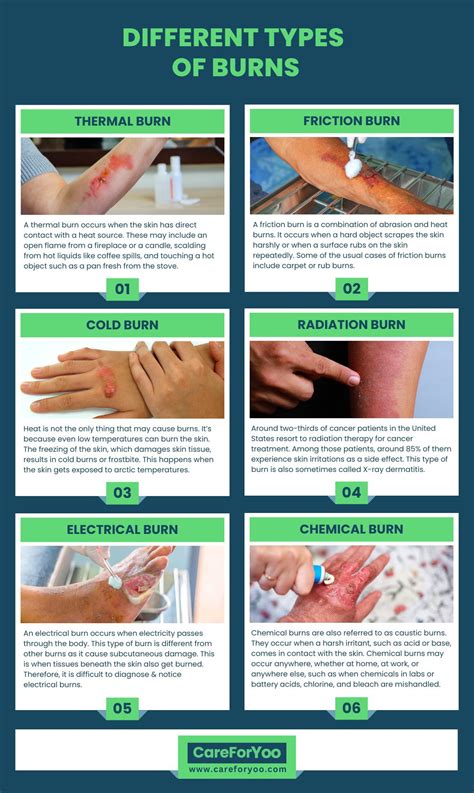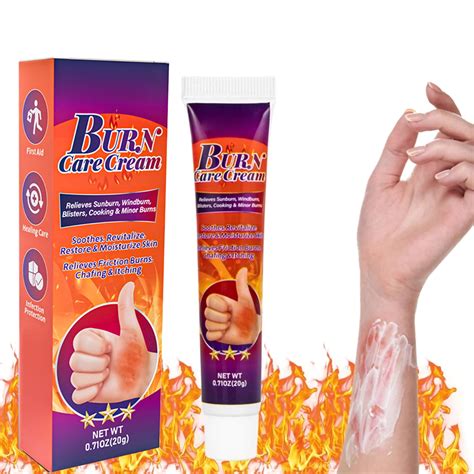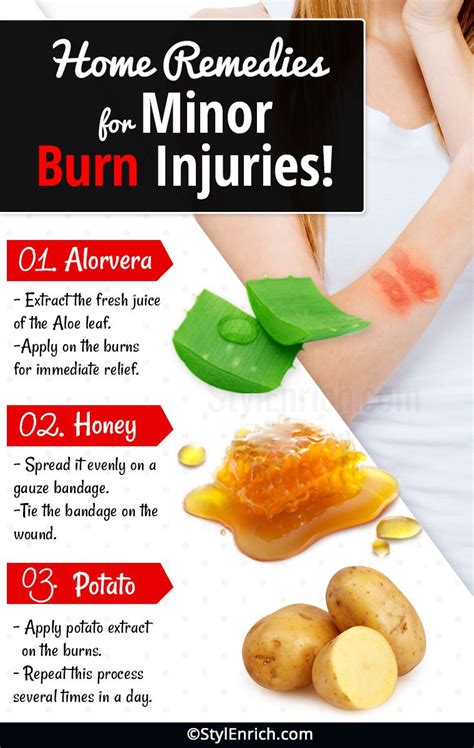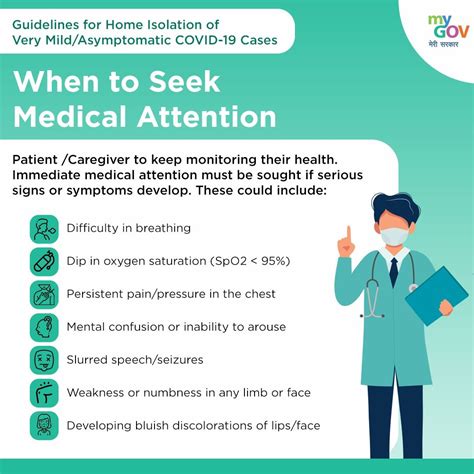Intro
Soothe burn wounds with effective ointments, promoting healing and reducing scarring. Discover topical creams and gels for minor to severe burns, featuring ingredients like aloe vera and silver sulfadiazine for burn relief and skin repair.
Burns are a common household injury that can be painful and potentially serious if not treated properly. While minor burns can often be treated at home, more severe burns require immediate medical attention. One of the most effective ways to treat minor burns is by using a topical ointment. Topical ointments for burns can help to reduce pain, promote healing, and prevent infection. In this article, we will explore the different types of ointments for burns, their benefits, and how to use them effectively.
Burns can be caused by a variety of factors, including heat, cold, electricity, chemicals, and radiation. The severity of a burn is classified into three degrees: first-degree, second-degree, and third-degree. First-degree burns affect only the outer layer of the skin and are characterized by redness, swelling, and pain. Second-degree burns affect both the outer and inner layers of the skin and can cause blisters, redness, and swelling. Third-degree burns are the most severe and can cause charred skin, white or leathery skin, and a lack of sensation.
Using an ointment for burns can help to promote healing, reduce pain, and prevent infection. There are several types of ointments available, including antibiotic ointments, moisturizing ointments, and topical creams. Antibiotic ointments, such as Neosporin or Bacitracin, can help to prevent infection and promote healing. Moisturizing ointments, such as aloe vera or vitamin E, can help to soothe and calm the skin. Topical creams, such as hydrocortisone or lidocaine, can help to reduce inflammation and relieve pain.
Ointment Types For Burns

There are several types of ointments for burns, each with its own unique benefits and uses. Some of the most common types of ointments for burns include:
- Antibiotic ointments: These ointments contain ingredients such as neomycin or bacitracin, which can help to prevent infection and promote healing.
- Moisturizing ointments: These ointments contain ingredients such as aloe vera or vitamin E, which can help to soothe and calm the skin.
- Topical creams: These creams contain ingredients such as hydrocortisine or lidocaine, which can help to reduce inflammation and relieve pain.
- Silver-based ointments: These ointments contain ingredients such as silver sulfadiazine, which can help to prevent infection and promote healing.
Benefits Of Using Ointment For Burns
Using an ointment for burns can have several benefits, including: * Reducing pain: Ointments can help to reduce pain and discomfort associated with burns. * Promoting healing: Ointments can help to promote healing by keeping the wound moist and preventing infection. * Preventing infection: Ointments can help to prevent infection by killing bacteria and other microorganisms. * Reducing inflammation: Ointments can help to reduce inflammation and swelling associated with burns.How To Use Ointment For Burns

Using an ointment for burns is relatively simple. Here are some steps to follow:
- Clean the burn: Before applying an ointment, make sure to clean the burn with cool or lukewarm water and a mild soap.
- Pat dry: Gently pat the burn dry with a clean towel.
- Apply ointment: Apply a thin layer of ointment to the burn, making sure to cover the entire affected area.
- Cover: Cover the burn with a non-stick bandage or dressing to protect it from further irritation.
- Repeat: Repeat the process 2-3 times a day, or as directed by a doctor.
Precautions When Using Ointment For Burns
While ointments can be effective in treating burns, there are some precautions to take: * Always read the label: Make sure to read the label carefully and follow the instructions. * Do a patch test: Do a patch test before applying an ointment to a large area to check for any allergic reactions. * Avoid using on broken skin: Avoid using ointments on broken skin or open wounds. * Keep out of reach of children: Keep ointments out of reach of children to avoid accidental ingestion.Home Remedies For Burns

In addition to using ointments, there are several home remedies that can help to treat burns. Some of these remedies include:
- Aloe vera: Aloe vera can help to soothe and calm the skin.
- Honey: Honey has antibacterial properties and can help to promote healing.
- Coconut oil: Coconut oil can help to moisturize and soothe the skin.
- Tea tree oil: Tea tree oil has antibacterial properties and can help to prevent infection.
Natural Ointments For Burns
There are several natural ointments that can be used to treat burns, including: * Aloe vera gel: Aloe vera gel can help to soothe and calm the skin. * Coconut oil: Coconut oil can help to moisturize and soothe the skin. * Shea butter: Shea butter can help to moisturize and protect the skin. * Beeswax: Beeswax can help to protect and soothe the skin.When To Seek Medical Attention

While ointments can be effective in treating minor burns, there are some cases where medical attention is necessary. Some of these cases include:
- Severe burns: If the burn is severe, covering a large area of the body, or affecting the face, hands, or feet.
- Burns that do not heal: If the burn does not heal within a few days, or if it becomes infected.
- Burns that are deep: If the burn is deep, or if it affects the underlying tissue.
- Burns that are caused by electricity or chemicals: If the burn is caused by electricity or chemicals, as these can cause internal damage.
Preventing Burns
Preventing burns is always better than treating them. Some ways to prevent burns include: * Being careful in the kitchen: Avoid wearing loose clothing while cooking, and keep a safe distance from hot surfaces. * Keeping electrical appliances safe: Keep electrical appliances away from water, and avoid overloading sockets. * Being careful with chemicals: Handle chemicals with care, and avoid mixing them with other substances. * Keeping children safe: Keep children away from hot surfaces, electrical appliances, and chemicals.Conclusion And Final Thoughts

In conclusion, ointments can be an effective way to treat minor burns. By understanding the different types of ointments available, their benefits, and how to use them, individuals can take the first step in promoting healing and preventing infection. However, it is always important to seek medical attention if the burn is severe, or if it does not heal within a few days. By taking the necessary precautions, individuals can prevent burns from occurring in the first place.
We hope this article has provided you with the necessary information to treat minor burns effectively. If you have any further questions or concerns, please do not hesitate to reach out. We would love to hear your thoughts and experiences with using ointments for burns. Please share this article with anyone who may benefit from it, and let's work together to promote healing and prevent infection.
What are the benefits of using ointment for burns?
+Using ointment for burns can help to reduce pain, promote healing, and prevent infection.
How do I apply ointment for burns?
+Apply a thin layer of ointment to the burn, making sure to cover the entire affected area. Cover with a non-stick bandage or dressing to protect it from further irritation.
When should I seek medical attention for a burn?
+Seek medical attention if the burn is severe, covers a large area of the body, or affects the face, hands, or feet. Also, seek medical attention if the burn does not heal within a few days, or if it becomes infected.
